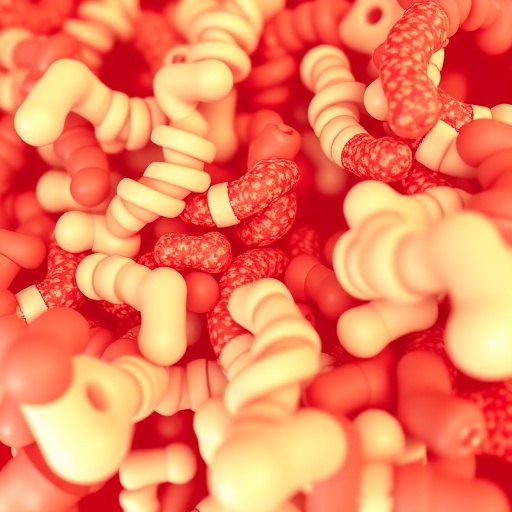Recent advancements in the realm of precision medicine have brought to light the complexities surrounding the treatment of chronic myeloid leukaemia (CML), particularly when it comes to understanding how specific mutations affect the efficacy of tyrosine kinase inhibitors (TKIs). CML is driven by the BCR–ABL1 fusion oncogene, and over the years, multiple generations of TKIs have been developed to target the resulting dysregulation. However, one of the ongoing challenges in oncology is effectively predicting the resistance profiles of these TKIs for patients whose cancer mutations are not comprehensively included in current clinical guidelines. In a groundbreaking study, researchers adopted an innovative approach using prime editing to explore this challenging terrain.
Harnessing the power of prime editing, a cutting-edge gene-editing technology, the study delved into the ABL1 kinase domain—a critical component coded by the BCR–ABL1 fusion. By generating an impressive 97% of all possible single-nucleotide variants, the researchers effectively created a comprehensive map that captures 98% of all possible corresponding amino acid variations. This extensive series of genetic alterations laid the groundwork for a detailed assessment of how these variants could influence resistance to a spectrum of five innovative TKIs currently employed in clinical settings, including imatinib, nilotinib, bosutinib, ponatinib, and asciminib.
Exploring the resistance mechanisms exhibited by various ABL1 mutations against the five TKIs, the study utilized K562 cells, a widely adopted model in CML research. These cells, which are derived from a human chronic myeloid leukaemia patient, provided an optimal environment to evaluate the impact of the induced single-nucleotide variants on drug susceptibility. As the researchers meticulously sifted through the data, they identified a staggering 361 pairs of resistance-conferring amino acid variants and their corresponding TKIs, revealing essential insights that could reshape clinical practices in treating CML.
The implications of this comprehensive resistance profiling extend well beyond mere scientific curiosity; they hold the potential to significantly enhance personalized medicine approaches for CML patients. By outfitting clinicians with detailed resistance maps, tailored drug selection can be tailored to the specific genetic makeup of an individual’s cancer, rather than relying on broad guidelines that may not account for unique mutation profiles. This approach could ultimately improve drug efficacy, decrease treatment-associated side effects, and lead to better patient outcomes as therapies are more finely tuned to the cancer’s genetic landscape.
In addition to this profound practical impact, the study contributes to the expanding field of cancer genomics by reflecting the remarkable power of prime editing. This technology, which allows for more precise modifications to the genome compared to traditional CRISPR-based methods, could open new avenues for investigating other oncogenic mutations, thereby potentially leading to the discovery of novel resistance mechanisms across a wide range of cancers. The specific focus on ABL1 mutations within this study underscores its relevance, as these mutations can manifest in diverse ways, influencing the behavior of leukaemia and its response to treatment.
While current TKIs have transformed the treatment landscape for CML, significant challenges remain, particularly regarding the evolving mutational landscape of BCR–ABL1. As resistance mutations develop, some patients may encounter challenges with standard therapies, necessitating innovative approaches to overcome these hurdles. The resistance map provided by this research serves as a vital resource not only for clinicians but also as a reference for ongoing drug development, allowing pharmaceutical companies and researchers to craft next-generation therapies designed to circumvent resistance mechanisms.
Moving forward, the integration of such comprehensive genetic databases into routine clinical practice could significantly change the face of cancer treatment. The transition from a one-size-fits-all approach to a more nuanced, individualized strategy holds promise for optimizing treatment regimens based on the unique genetic profiles of patients. This endeavor will not only advance patient care but also foster a deeper understanding of the underlying biology of CML and its myriad manifestations.
As precision medicine continues to evolve, the synergy between genomic insights and therapeutic strategies will be crucial for combating cancer more effectively. This research exemplifies the critical role of innovative technology and methodologies, such as prime editing, in enriching our understanding of complex diseases. The potential for customizing treatment plans to account for the nuances of resistance profiles paves the way for a future where patients receive therapies designed specifically for their individual cancer biology.
In summary, the study highlights the dynamic interplay between genetics and pharmacology in the context of CML treatment. By employing cutting-edge gene-editing technology to unravel the complexities of resistance to TKIs, the research establishes a vital foundation for future advancements in precision oncology. As this field progresses, the implications of these findings are set to resonate throughout cancer treatment paradigms, promising a life-changing impact for patients around the globe.
The commitment to expanding our understanding of oncogenic mutations will remain instrumental in overcoming the challenges posed by drug resistance. With ongoing efforts to map, analyze, and harness these genetic variants, researchers are poised to make significant strides in the pursuit of more effective and personalized cancer therapies.
Subject of Research: Chronic Myeloid Leukaemia and Tyrosine Kinase Inhibitors
Article Title: Comprehensive resistance profiling of chronic myeloid leukaemia associated ABL1 variants against five tyrosine kinase inhibitors using prime editing.
Article References:
Jung, Y., Yu, G., Oh, HC. et al. Comprehensive resistance profiling of chronic myeloid leukaemia associated ABL1 variants against five tyrosine kinase inhibitors using prime editing. Nat. Biomed. Eng (2025). https://doi.org/10.1038/s41551-025-01531-4
Image Credits: AI Generated
DOI: 10.1038/s41551-025-01531-4
Keywords: Chronic Myeloid Leukaemia, Tyrosine Kinase Inhibitors, ABL1 mutations, Prime Editing, Precision Medicine, Drug Resistance, BCR–ABL1 Fusion Oncogene, Cancer Genomics, Personalized Treatment.




